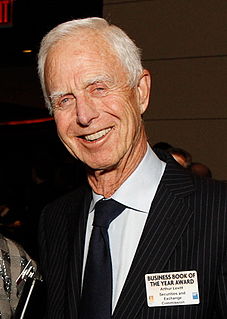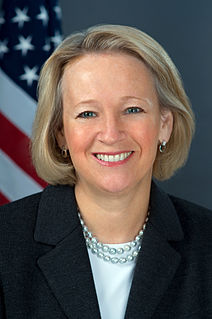A Quote by Seth Klarman
Targeting investment returns leads investors to focus on potential upside rather on downside risk ... rather than targeting a desired rate of return, even an eminently reasonable one, investors should target risk.
Related Quotes
Below, we itemize some of the quite different lessons investors seem to have learned as of late 2009 - false lessons, we believe. To not only learn but also effectively implement investment lessons requires a disciplined, often contrary, and long-term-oriented investment approach. It requires a resolute focus on risk aversion rather than maximizing immediate returns, as well as an understanding of history, a sense of financial market cycles, and, at times, extraordinary patience.
A new product, technology, or innovation - such as Bitcoin - has the potential to give rise both to frauds and high-risk investment opportunities. Potential investors can be easily enticed with the promise of high returns in a new investment space and also may be less skeptical when assessing something novel, new, and cutting-edge.
The average American thinks billionaire investors are going to be right based on some talking head. They invest and they have no backup plan. Americans think these guys are giant risk-takers. The truth is they believe in taking as little risk as humanly possible, for the maximum amount of upside. They're looking for that spread of disproportionate risk-reward.
Where you want to be is always in control, never wishing, always trading, and always first and foremost protecting your ass. That's why most people lose money as individual investors or traders because they're not focusing on losing money. They need to focus on the money that they have at risk and how much capital is at risk in any single investment they have. If everyone spent 90 percent of their time on that, not 90 percent of the time on pie-in-the-sky ideas on how much money they're going to make, then they will be incredibly successful investors.
Too often, investors are the target of fraudulent schemes disguised as investment opportunities. As you know, if the balance is tipped to the point where investors are not confident that there are appropriate protections, investors will lose confidence in our markets, and capital formation will ultimately be made more difficult and expensive.
There is not necessarily a good reason why a regulator should have to be involved in product design and marketing for rich and sophisticated investors. We recommend that such investors should be able to sign a piece of paper, which allows them to go ahead and buy unregulated products at their own risk.
I believe that the behavior of too many of our corporations investment bankers and fund managers has jeopardized some of the trust that investors have had. It's not the economic engine that we need to focus on, but the need to make sure that our investors receive their fair share of the returns that that great economic system produces.
Nowhere does it say that investors should strive to make every last dollar of potential profit; consideration of risk must never take a backseat to return. Conservative positioning entering a crisis is crucial: it enables one to maintain long-term oriented, clear thinking, and to focus on new opportunities while others are distracted or even forced to sell. Portfolio hedges must be in place before a crisis hits. One cannot reliably or affordably increase or replace hedges that are rolling off during a financial crisis.
Warren Buffett likes to say that the first rule of investing is "Don't lose money," and the second rule is, "Never forget the first rule." I too believe that avoiding loss should be the primary goal of every investor. This does not mean that investors should never incur the risk of any loss at all. Rather "don't lose money" means that over several years an investment portfolio should not be exposed to appreciable loss of principal.
Unlike return, however, risk is no more quantifiable at the end of an investment that it was at its beginning. Risk simply cannot be described by a single number. Intuitively we understand that risk varies from investment to investment: a government bond is not as risky as the stock of a high-technology company. But investments do not provide information about their risks the way food packages provide nutritional data.





























